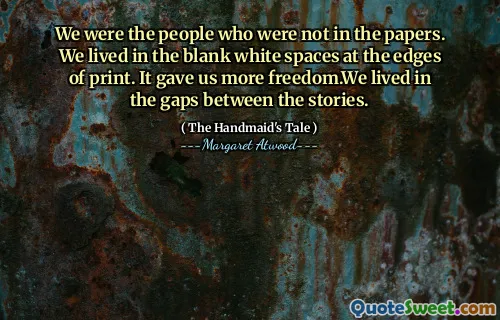I knelt to examine the floor, and there it was, in tiny writing, quite fresh it seemed, scratched with a pin or maybe just a fingernail, in the corner where the darkest shadow fell: Nolite te bastardes carborundorum.
The protagonist in Margaret Atwood's "The Handmaid's Tale" discovers a message etched into the floor, which suggests a sense of rebellion. The phrase "Nolite te bastardes carborundorum," which translates loosely to "don't let the bastards grind you down," symbolizes a call to resist oppression in a dystopian society. This moment signifies her awakening and the potential for hope amidst despair.
This revelation highlights the theme of resistance in the narrative. It serves as a reminder that even in dire circumstances, individuals can find ways to express their defiance. The act of discovering the message reinforces the notion that the spirit of rebellion can persist even in the bleakest situations, inspiring the protagonist and potentially guiding her path forward in a repressive regime.






